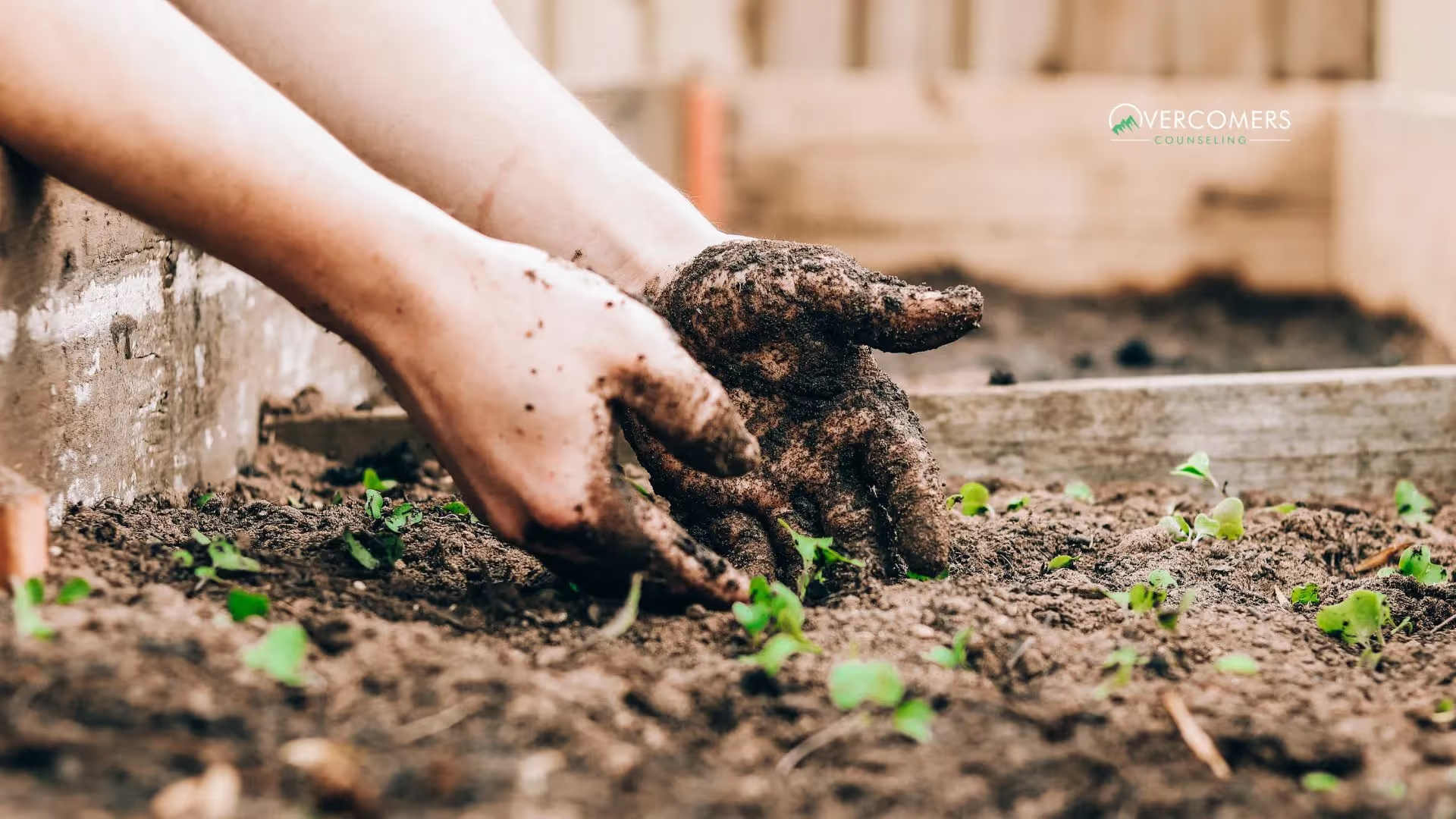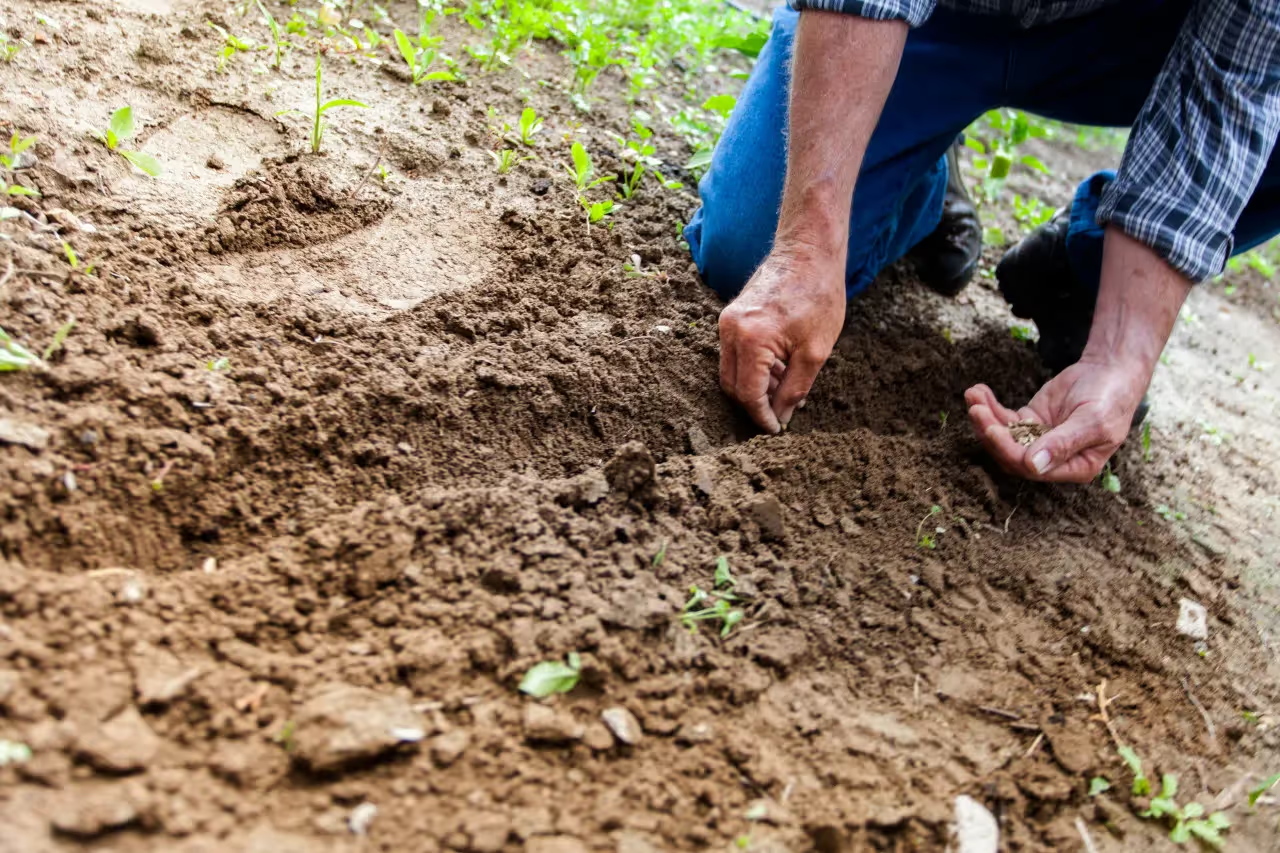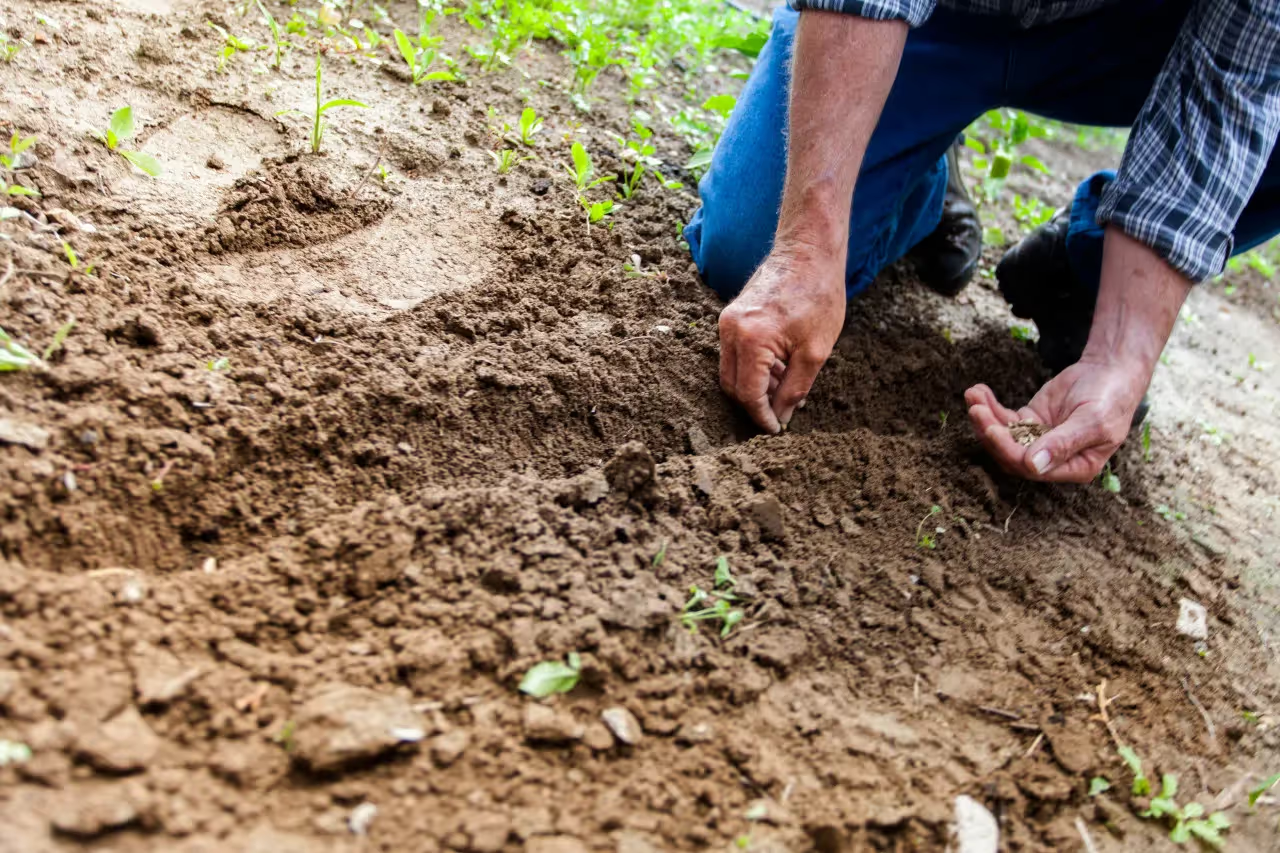There is a time in everyone's life when they feel the sting of loss and sorrow. It can result from the passing of a loved one or simply from adjusting to a...

There is a time in everyone's life when they feel the sting of loss and sorrow.
It can result from the passing of a loved one or simply from adjusting to a new way of life.
The grieving process is a lengthy ordeal, but there are ways to alleviate feelings and find solace in the meantime.
Gardening is a great way to take things slow and enjoy the world around you.
Planting seeds, tending to their growth, working with the seasons, and experiencing nature's life and death cycle all contribute to the process of healing.
Gardening can help deal with loss by improving your emotional well-being and your physical health.
One way gardening can help deal with loss is by reducing anxiety.
Most people experience an increased level of anxiety after experiencing a loss.
Gardening has a calming effect on people, and it can help lower anxiety levels.
Self-neglect is one of the human reactions to loss or grief.
The attention and care required in gardening can help you learn to practice self-care too.
Also, gardening can help you reduce stress levels.
Being around nature always has a peaceful and relaxing effect on people.
Read on to learn more about how gardening can help deal with loss.
There is some evidence that the loss of a loved one can either exacerbate preexisting anxiety disorders or trigger new ones.
Anxiety can manifest itself in numerous ways, some of which include excessive worrying, negative thought patterns, worry, and even panic attacks.
If you're experiencing anxiety, gardening can help deal with loss through practicing mindfulness.
Mindfulness involves staying in the here and now by focusing on the sounds, sights, and smells around you.
Spending time outdoors has been shown to reduce rumination-related neural activity in the subgenual prefrontal cortex and increase emotion regulation.
This helps in alleviating the aforementioned symptoms.

The loss of a loved one is widely recognized as one of the life experiences that can put a person through the greatest amount of emotional strain.
Growing plants in your own yard are one of the most effective ways to alleviate stress during difficult times, such as bereavement.
Gardening can reduce stress levels during any stressful time in your life.
According to a recent study, the stress levels of individuals who garden on a daily basis are 4.2% lower than those of individuals who do not garden at all.
Gardening is a great activity for redirecting one's attention away from one's internal monologue and onto the immediate tasks at hand, which can help one feel better.
Many people report feeling less stressed after spending time near plants.
There's truth to the adage that one can find the purest passageway to inner peace in the great outdoors.

There are a lot of similarities between grieving and working in a garden.
The following are some of the ways that gardening can assist us in working through the pain of loss and grief that we experience in our lives.
Every part of gardening or any work in the garden requires a specific sequence of important steps to be followed.
Without taking these steps, the flowers or plants in question will either perish or wither away.
These steps are essential to the life and growth of any plant.
As we tend to our gardens, we can also learn to take care of ourselves and become better gardeners.
It is essential for a garden's growth to receive nourishment in the form of water, sunlight, and fertilizer.
In addition, the plant must be pruned and weeded in order to achieve its full potential.
Cooperation among gardeners is essential for the success of any communal gardening project.
Increased social connections and a stronger support system are two ways in which group members can improve mental health.
Finding others who share your passion for gardening can be a good way to break out of your shell and forget about your sadness and loneliness.
Particularly if the loss is the result of the death of someone or a change in your life, this can be a comforting thought in the midst of a time of transition.
When people get together to tend gardens, it can instill a sense of duty in each participant.
An obligation to do something that will make you feel good once you're done.
So many people have memorial gardens to honor their loved ones who have passed on.
Not only will memorial gardens help to grieve people heal, but these gardens also represent their way of keeping the deceased close to their hearts.
Memorial gardens honor the dead but also keep them alive in our hearts.
Taking care of seedlings and then watching them flourish is a reassuring ritual that makes the sweat and effort worthwhile.
Also, the life cycles of plants and flowers can help you learn about life and death.
The gardens vary in complexity, with some featuring intricate pathways, stepping stones, and even waterfalls.
After a loss of a loved one, many people find solace in tending to their gardens.
It's important to note that even for the most enthusiastic gardener, gardening is not a quick fix for all.
Gardening can help deal with loss by helping to reduce anxiety, lowering the stress hormone, helping you learn to take care of yourself, encouraging social bonds, and providing a means to create and tend to a memorial garden for your loved one.
The stages of grief, according to the Kübler-Ross model, include denial, anger, bargaining, depression, and acceptance. However, it's important to note that not everyone will experience all these stages, or in this order. Grief is a highly individual process.
There is no "right" or "wrong" answer when it comes to how long grief will last in the elderly. For some people, the grieving process may last for several months or even years. For others, it may come in waves – they may have periods of intense grief followed by periods of relative calm. It's important to remember that everyone grieves in their own way and at their own pace.
Grief may feel worse at night because sleep disturbances are common during the grieving process. As nighttime falls, distractions diminish and we're left alone with our thoughts, which can make the loss feel overwhelming.
Addressing grief is crucial because unresolved grief can significantly impact your quality of life, overall well-being, and ability to function in daily activities. Left unaddressed, grief can lead to more severe mental health issues, such as depression, anxiety, and complicated grief.
Complicated grief, also known as prolonged grief disorder, is when intense grief symptoms continue for an extended period, often longer than six months. This type of grief can result in difficulty resuming normal life activities and can lead to sleep problems.
It's important to remember that you are allowed to grieve however you need to, and that doesn't mean you have to ruin the holidays for everyone else. If you need to take a break from holiday festivities, do so. Go for a walk, take a nap, watch a movie—whatever you need to do to take care of yourself. You can also try talking to your family about your grief ahead of time and asking for their understanding and support.